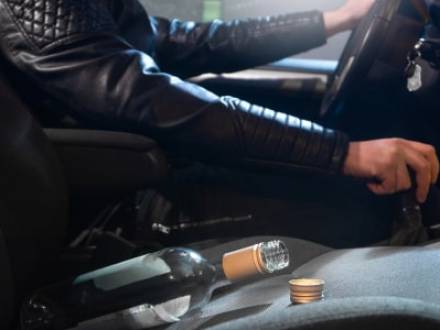817-599-7005
How Reasonable Suspicion and Probable Cause Impact DWI Arrests
 While most people believe reasonable suspicion and probable cause can be used interchangeably, they have different legal meanings. Reasonable suspicion is a common-sense conclusion that requires more than a "feeling" or a "hunch" with sufficient facts and/or circumstances that support more than a minor suspicion. Probable cause requires a higher standard, dictating that a reasonable person would believe a crime was either in progress, about to be committed, or had already been committed.
While most people believe reasonable suspicion and probable cause can be used interchangeably, they have different legal meanings. Reasonable suspicion is a common-sense conclusion that requires more than a "feeling" or a "hunch" with sufficient facts and/or circumstances that support more than a minor suspicion. Probable cause requires a higher standard, dictating that a reasonable person would believe a crime was either in progress, about to be committed, or had already been committed.
Although both probable cause and reasonable suspicion involve an officer’s overall impression of a specific situation, they have different outcomes regarding a person’s rights, the proper protocol for a stop or stop-and-frisk, and the outcome of the situation as a whole. Probable cause is required for a search warrant, an arrest warrant, or an arrest when an officer observes a crime in process.
If you believe the officer did not have reasonable suspicion to pull you over or probable cause to arrest you and charge you with DWI, it is important to discuss these issues with your Weatherford, Texas criminal defense attorney. The more details you can provide your attorney with, the more likely there will be the best outcome possible for your DWI charges.
Reasonable Suspicion is Required to Pull a Person Over
If a police officer sees a person leaving the bar at 2:00 a.m., this fact alone is not sufficient to pull the person over to see if they are driving while intoxicated. The officer must see the driver commit a traffic offense before they have reasonable suspicion to pull them over. In short, the stop must be based on articulable facts.
If the officer sees the driver weaving back and forth across the center line, driving excessively slowly or too fast, running a stop sign or a stop light, or any other concrete traffic offense, then there is reasonable suspicion to pull the person over. Reasonable suspicion allows law enforcement to briefly detain and question a driver to determine whether the driver is under the influence of alcohol or drugs.
When is Probable Cause Required in a DWI Stop?
Probable cause, as the higher legal standard, allows police to obtain a search warrant for a DWI stop that allows them to search the person’s vehicle. Obtaining a warrant requires more than suspicion of criminal activity. There must be sufficient information or evidence to suggest to any reasonable person that a crime has been committed.
If an officer has reasonable suspicion that a person is driving under the influence and pulls that person over, then they will look at the person and ask a few questions to determine whether there is probable cause to conduct field sobriety tests or a breathalyzer test. If the driver has red, watery eyes, is slurring his or her words, and there is a strong smell of alcohol coming from the person or the vehicle, then the officer has probable cause to continue.
Probable cause allows the officer to ask the driver to take a field sobriety test or a portable breathalyzer test. If these tests indicate impairment, then there is probable cause for an arrest. Actions taken by an officer under reasonable suspicion could lead to the discovery of evidence that establishes probable cause.
Actions taken under probable cause can lead to an arrest, charges, and a potential conviction. Courts scrutinize probable cause actions more closely than reasonable suspicion, although, without reasonable suspicion to pull a driver over, the entire case falls apart because none of the evidence is allowed.
Contact a Parker County, TX DWI Lawyer
If you are facing DWI charges, you need an aggressive, highly skilled Weatherford, TX DWI attorney from Soraya Joslin, P.C.. Attorney Joslin served as an ADA for several years, giving her a comprehensive understanding of how the criminal justice system works from both sides. With almost 30 years of experience, she is ready to build a solid defense on your behalf. Call 817-599-7005 to schedule your free consultation.



